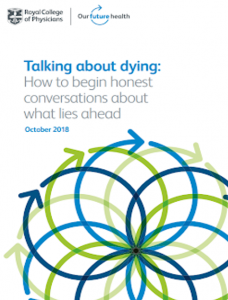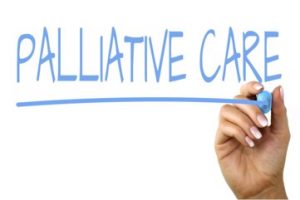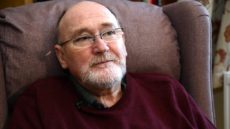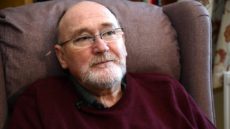The first-ever national coalition for assisted dying, made up of a cross-section of campaigners including doctors and nurses, has formed to push for the legalisation of assisted dying for the millions of citizens in the UK and crown dependencies who want the right to choose.
The Assisted Dying Coalition will campaign for the legal recognition of the right to die for individuals who have a clear and settled wish to end their life and who are terminally ill or incurably suffering.
The Coalition is made up of five organisations: End of Life Choices Jersey, Friends at the End, Humanist Society Scotland, Humanists UK, and My Death, My Decision.
The Coalition’s launch today coincides with the release of new figures that show that since the UK Parliament last considered assisted dying laws in 2015, more than one citizen per week (233 people), were forced to make the heartbreaking journey to travel to Switzerland to end their life. The Coalition says thousands more that might want an assisted death don’t have the financial or physical means to travel to Switzerland.
The figures also reveal that almost 1,500 UK citizens have a paid membership with an assisted dying organisation in Switzerland, highlighting the growing desperation of many looking to foreign countries to give them peace of mind because the UK denies them choice. It costs on average £10,000 per person to access the services of a Swiss clinic.
The group is also backed by activist Paul Lamb. Paul, who is paralysed from the neck down, took his right to die case to the Court of Appeal, the Supreme Court and the European Court of Human Rights after Tony and Jane Nicklinson’s case failed.
Launching the coalition, the group’s Chair Carrie Hynds, a long-time assisted dying campaigner and Director of My Death, My Decision, said the issue could no longer be seen as ‘too ethically complex’ for Government as 80% of the UK public now supported legalising assisted dying.
Assisted Dying Coalition Chair Carrie Hynds said: ‘It is disgraceful that in the last few years alone, 233 people have been forced to make that agonising journey abroad, far from their family and friends, to have an assisted death. The various legislatures in these isles might want to wait, but it is too late for those who have already faced this injustice.
‘As a Coalition, we will be working to ensure that people have the individual autonomy to make their own decisions about their end of life choices. Several countries including Canada, Luxembourg, and Switzerland all have assisted dying laws in place which give dignity to people in dying. The UK and crown dependencies must follow in the footsteps of these countries while also implementing strong legal safeguards that protect all individuals.’
Humanists UK Chief Executive Andrew Copson said: ‘Politicians and governments cannot simply leave the issue of assisted dying in the “too-hard” category. Many people want the peace of mind that if they get to a point where they are terminally ill or incurably suffering, they will have the right to make their own choices about their death. This is a fundamental human right and this fact should trump any political, religious, or other motives.’
Assisted dying campaigner Paul Lamb, and supporter of the Coalition, said: ‘I’ve tried time and time again to get the UK Parliament to listen to me but they won’t. Animals have more rights than humans in this debate which is completely unthinkable in the modern day when individual rights in other aspects of life have progressed so much. I endorse the Coalition’s work and hope they can give a voice to people who have felt voiceless for too long.’
Humanist Society Scotland Chief Executive Gordon MacRae said: ‘We believe it is important that everyone should have the right to control their own bodies and ultimately their own options in dying. There is still an important human rights dilemma in the current legal framework across all parts of the UK including Scotland, about how individuals who are terminally ill or intolerably suffering have their rights and choices restricted.’
Friends at the End Chief Executive Amanda Ward said: ‘Assisted dying is an issue which is not going to go away, there is clear support from the general public for choice at the end of life. This is an issue which politicians need to show leadership on and recognise that it is not acceptable or sustainable to continue to ship the issue abroad, leave people to take their lives alone or to suffer in intolerable pain.’
End of Life Choices Jersey Deputy Coordinator Michael Tailbard said: ‘It matters how we end our lives, and we need to be empowered to make our own choices about it. For some, the last phase of life is not just disappointing, but truly unbearable — unbearable through pain, or loss of dignity, or whatever else. For those people, any caring society would offer help to die decently, in a manner of their own choosing.’
The new push for legalising assisted dying comes at a crucial time, after the announcement by the Royal College of Physicians that it will consult its members on the issue, and two recent high-profile public cases. The first case was that of Noel Conway, a Humanists UK member, who suffers from motor neurone disease, who recently lost an application to appeal at the Supreme Court despite his lawyers arguing that it was a breach of his human rights to deny him an assisted death. Mr Conway says his only option now will be to remove his ventilator and suffocate to death. The other was Omid T, a Humanists UK member, who died at the Lifecircle clinic in Switzerland in October 2018 after a long battle with multiple system atrophy. His dying wish was to bring about assisted dying reform in the UK.
NOTES:
For further comment or information, please contact Humanists UK press manager Casey-Ann Seaniger at casey@humanism.org.uk or phone 020 7324 3078 or 07 393344293.
For a copy of our statistics briefing notes, click here.
For information about the Assisted Dying Coalition, visit https://assisteddying.org.uk/about/
About the member organisations
End of Life Choices Jersey
End of Life Choices Jersey is a campaign group working to empower mentally competent adults with incurable health problems which result in their perceived quality of life falling permanently below the level they are able to accept, provided this is their own permanent request, the option of an assisted death. They campaign to change the law on assisted dying, and to encourage a wider conversation about the use of advance decisions.
Friends at the End
Friends at the End (FATE) is a leading campaign group in Scotland, working towards a change in the law to allow assisted dying. For over 17 years, it has worked to promote knowledge about end of life choices and campaigned for better end-of-life care for everyone.
Humanist Society Scotland
Humanist Society Scotland is part of the wider humanist movement, with a clear vision for a secular Scotland. They work to further ethical and moral outcomes based on compassion, knowledge and reason.
Humanists UK
Humanists UK advances free thinking and promotes humanism to create a tolerant society where rational thinking and kindness prevail. Its work brings non-religious people together to develop their own views, helping people be happier and more fulfilled in the one life we have. Through its ceremonies, education services, and community and campaigning work, it strives to create a fair and equal society for all. Humanists UK believes that individuals who are of sound mind but who are terminally ill or incurably suffering should have a right to decide to end their life at a time and in a manner of their choosing.
My Death, My Decision
My Death, My Decision (MDMD) is a right to die organisation which wants to see a more compassionate approach to dying in the UK. It campaigns for a change in UK law to allow medical assistance to die to be given to mentally competent adults, with incurable health problems that result in their perceived quality of life falling permanently below the level they are able to accept, providing this is their own persistent request.
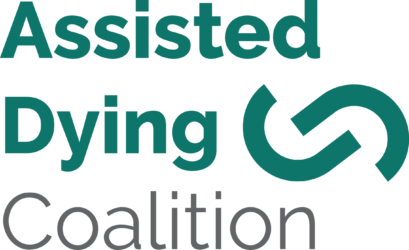
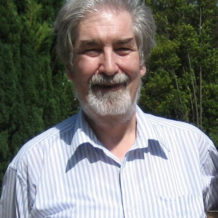 he staff and trustees of Humanists UK are sad to note the death of humanist moral philosopher and logician Michael Clark, who ended his life at Dignitas in Switzerland on 23 January 2019. He was a longtime member of Humanists UK and its Humanist Philosophers Group, contributing to many of its publications over the years.
he staff and trustees of Humanists UK are sad to note the death of humanist moral philosopher and logician Michael Clark, who ended his life at Dignitas in Switzerland on 23 January 2019. He was a longtime member of Humanists UK and its Humanist Philosophers Group, contributing to many of its publications over the years.
